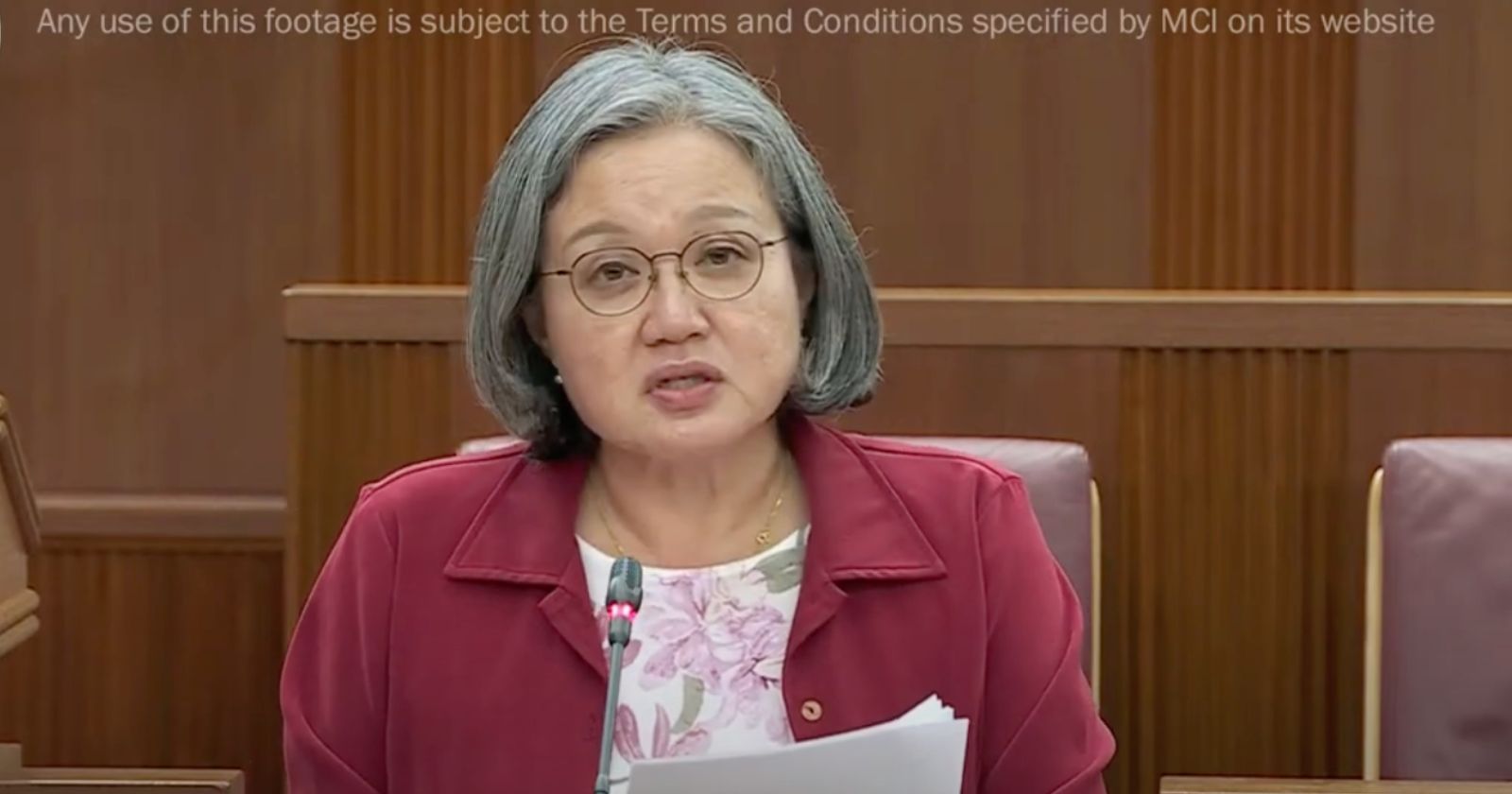In an adjournment motion speech during Monday's parliament hearing, Workers' Party (WP) Member of Parliament (MP) Sylvia Lim called for the government to do more to help victims of online scams.
She said victims of these scams should be compensated in a timely manner without having to undergo a complex adjudication process.
Referring to the equitable loss-sharing framework first announced in February 2022, Lim stated that it is inadequate and unjust for scam victims to bear the proportion of loss amounting to scams.
The framework aims to ensure shared responsibility between banks and consumers in cases of scam losses. A consultation paper for the framework is slated to be released in Q3 of 2023.
Minister of State for Trade and Industry Alvin Tan responded to Lim, saying that it would not be fair nor desirable to reimburse victims fully without consideration of their culpability.
"Doing so can erode vigilance and personal responsibility and allow users into complacency," he said.
Consumers are not equipped to combat scams
Lim reasoned that consumers are not sufficiently equipped to combat scams, seeing as online frauds have become increasingly sophisticated.
Fraudsters can now take control of a customer's phone and obtain their bank login details through the clicking of a malicious link, she said.
"Even the most technologically savvy person could easily make this mistake and within a day had their life savings wiped out."
On the other hand, banks should take charge in combating scams as they are best positioned and have the best resources to do so, Lim suggested.
"Banks are able to monitor transactions, block suspicious payment flows, and keep abreast of the latest technological developments." she explained. "Such endeavours are beyond the remit of most bank customers."
Look at how other jurisdictions protect consumers
Lim suggested looking at how other countries' jurisdictions are protecting their consumers.
Using the United Kingdom as an example, she pointed out their law requiring banks to reimburse scam victims fully.
This applies except when the customer was fraudulent or grossly negligent, or the transaction involves cryptocurrency or international payments.
She said this solution is simpler and quicker and "will generally not require a time-consuming and resource-intensive adjudication process for each case".
Lim added that Australia is considering similar measures, while the European Union has proposed granting refunds to victims of authorised payment fraud in certain circumstances.
She disagreed that this measure may be unfair to banks, suggesting that it may incentivise banks to be more proactive in preventing and detecting scams.
"To state the obvious, prevention is preferable to reimbursement as it stops the problem at its root."
Tan responded that the government is monitoring developments from other jurisdictions and will take them into account as they develop the loss-sharing framework further.
However, he also emphasised that individual customers have an important responsibility to protect access to their accounts.
This involves practising good cyber hygiene and being diligent in preventing login information and One-Time Passwords from being divulged to third parties, he said.
Reintroduce physical tokens
Another suggestion by Lim is to reintroduce physical tokens as a default measure for two-factor authentication (2FA).
"Today, most banks only offer these on request and have a digital token or SMS verification as the default option for 2FA," she said.
This means that the mobile phone becomes the single source of vulnerability.
She explained that in cases where handphones become infected with malware, 2FA does not act as a second degree of authentication.
"Experts believe that it is time to resurrect hardware tokens, which are standalone devices apart from the phone," she added.
Lim also suggested that added verification steps and longer mandatory waiting periods should also be implemented when the transaction involves a vulnerable client, such as an elderly or mentally impaired person.
"Bank should adopt closer scrutiny over transactions from such accounts, mandating lower transfer limits and longer waiting times by default," she said.
In response, Tan replied that consumers can request physical tokens if they want to and that the Monetary Association of Singapore (MAS) will look into her suggestion.
Regulate settlement of consumer disputes
Lim also called for MAS to consider adopting regulatory guidelines to ensure fairness during the settlement of consumer disputes with banks, especially concerning scams.
She described some banks' goodwill payment offers as paltry in relation to the loss incurred by consumers.
Such offers are usually tied to non-disclosure agreements (NDAs) which are onerous and one-sided, requiring absolute secrecy from the customer and requiring the customer to forego all rights to recover for the sums, she elaborated.
She highlighted the unequal bargaining power between the banks and consumers.
"Will the MAS stand by if desperate customers are being bulldozed and bullied?"
In response, Tan replied:
"Depending on the facts of each case, banks may offer goodwill payments to customers.
If a customer is unsatisfied with an offer, he may decline and approach feedback for mediation and adjudication.
The customer can further pursue his case in court if he's not satisfied with the outcome. But if the customer accepts a goodwill payment offer, he or she will be bound by the terms of the offer.
He added that if new information comes to light materially different from the premise upon which the customer had accepted the goodwill offer, the customer can request the bank to resolve the case or approach the Financial Industry Disputes Resolution Centre for assistance.
Tan concluded by maintaining that a discerning and vigilant public remains essential in the fight against scams.
Top photo from MCI/Youtube

If you like what you read, follow us on Facebook, Instagram, Twitter and Telegram to get the latest updates.



